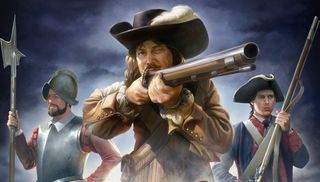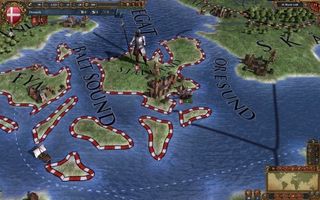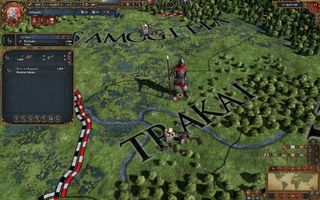
This article originally appeared in issue 244 of PC Gamer UK.
Sweden's time as a European superpower was both relatively brief and slightly improbable. In the latter half of the 17th century, when larger neighbours were putting their military faith in massed muskets and newfangled bayonets, the Swedes were carving out spectacular victories with a combination of old-fashioned pikes and death-or-glory charges.
Blending the bold and the archaic is something Swedish strategy gaming superpower Paradox know all about. While they weren't the first developer to present super-studious gamers with super-detailed grand strategic sandboxes, they did fracture the mould by freeing history-wallowers from the tyranny of turns, adding plausible inertia to national change, and sprinkling Renaissance reenactments with events plucked directly from the pages of history books.
A dozen years on from the boardgame conversion that spawned the Europa Universalis dynasty and paved the way for sibling franchises such as Hearts of Iron, Crusader Kings and Victoria, the scholarly Stockholmites are in the early stages of fashioning a fourth EU. As lead designer Chris King confessed to me, this time out the burden of history is weighing on the team in more ways than one.

“Making a sequel is never easy, and when the third version received four expansions, a fourth instalment is an added challenge. You are always aware of the danger that you'll change the things that made the game great, and leave the things that weren't so good.”
So why not keep churning out adjuncts like Divine Wind and Napoleon's Ambition? “The biggest reason, and our first pillar of our design, is the interface,” says King. “With each successive expansion we have gradually sought to cram more and more information into the same interface. With a new game, and the freedom it offers, we can start from square one with the UI.”
It's an encouraging declaration. Despite effective tutorials, a strong manual and helpful tooltips, EU3 – with its lacy profusion of interface tabs, sliders and map modes – was a game guaranteed to make a Total War tourist gulp and glance at the door.
The biggest gaming news, reviews and hardware deals
Keep up to date with the most important stories and the best deals, as picked by the PC Gamer team.
Complementing the added friendliness should be plenty of additional period flavour. “We know some players thought that the countries felt too similar in EU3. Through expansions we were able to differentiate countries more, but with EU4 we are going to make sure this is in the game from the start.”

The plan is to create nation-specific 'national ideas'. Instead of nudging your country in specific directions by selecting up to ten generic national ideas (the current palette includes things like 'Quest for the New World' and 'Smithian economics') in EU4 a portion of the buffs available will be unique, designed to lure you down avenues abuzz with historical echoes.
The details are still being nailed down, but plumping for The Big Island Just To The Left Of France should lead to subtle inducements to kickstart the Industrial Revolution. Pick a country like Brandenburg-Prussia and you'll be encouraged to ape Frederick the Great.
Considering the number of happy monarch mollycoddlers it has generated, it doesn't come as much of a surprise to hear Chris admit that Crusader Kings II has influenced the EU4 blueprint. The constantly changing – and therefore hard to monitor – relationships system from EU will be replaced by CK2's more manageable and static mechanism. Similarly, the EU team are hoping to include a dash of dynastic roller coaster through a radical new approach to national rulers.

If you love big trucks, establishing trade routes, and the phrase 'post-apocalyptic survival business simulator' then I've got just the strategy RPG for you

Blizzard veteran David Kim's strategy comeback with Battle Aces is 'very personal:' 'I just can't accept... the end-all peak of RTS is StarCraft 2 and nothing can ever be better'
Most Popular

